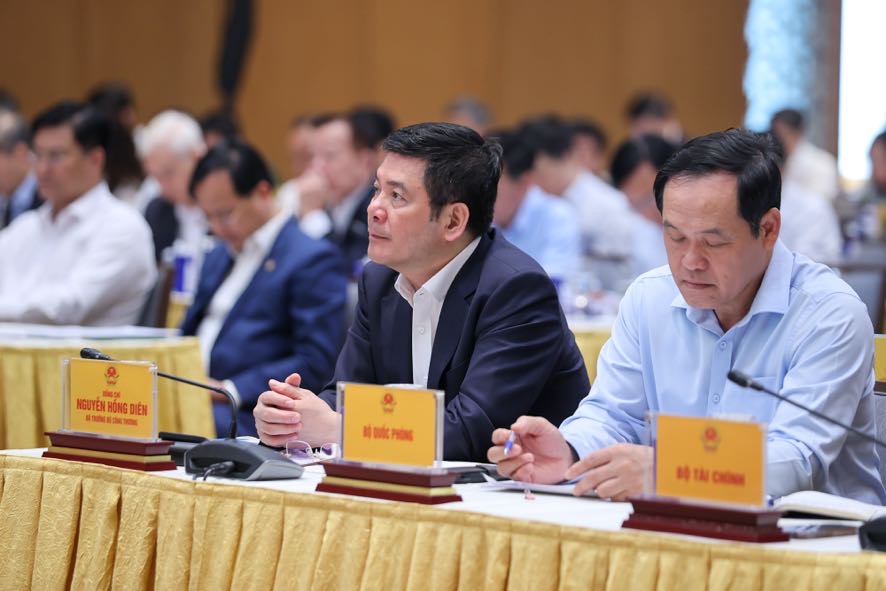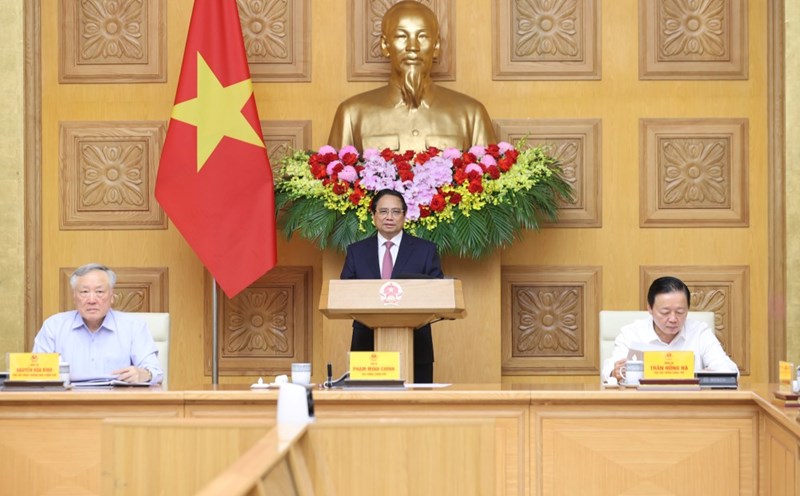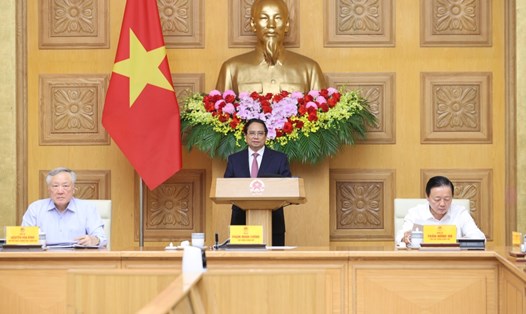On April 15, Member of the Politburo and Prime Minister Pham Minh Chinh presided over the Prime Minister's meeting to work with state -owned enterprises (SOEs) pioneered in digital transformation and promote growth.
Speaking at the conclusion, the Prime Minister stated that, although the number of corporations and corporations accounted for only a small percentage out of nearly 1 million operating businesses of our country, it played an important role and position, holding an important physical force of the economy.
Therefore, SOEs must develop, grow, grow stronger and grow, on the basis of promoting science and technology, innovation, digital transformation, green conversion, labor productivity.
Regarding solutions to promote growth, the Prime Minister stated that businesses must pay attention to refreshing three traditional growth drivers on investment, export, consumption and promote new growth drivers.

Regarding export, the Prime Minister assessed that it was difficult but not as much as the difficulties we have overcome; It is not now that the export market has been narrowed but has been narrowed since the CIVI-19 pandemic, conflict, supply chain fracture.
Businesses must diversify markets, products, supply chains, focus on exploiting domestic and dynamic markets, creating creativity to find new markets in the world such as the Middle East, Central Asia, Halal, Latin America, Africa.
More economical to focus on investment, expand investment, improve investment efficiency, reduce capital efficiency coefficient (ICOR).
The Prime Minister noted that SOEs must coordinate with each other, study, support each other and with more private enterprises.
For ministries, the Prime Minister requested to review, propose and immediately solve institutional problems, especially related to the State Capital Management and Investment Law in enterprises in the principle of "whatever they know, do not know, do not manage", enhance decentralization and decentralization.
Review and eliminate all cumbersome administrative procedures for businesses; Cut at least 30% of procedures, costs and compliance time.
Along with that, developing strategic infrastructure to reduce input costs for businesses; High quality human resource training for businesses; contribute to the prevention of corruption, negativity and waste; Boldly assign business to the business.
Regarding monetary policies, the Prime Minister noted that the exchange rate stability, efforts to reduce interest rates, have preferential credit packages for the fields and delineate debt, delay debt when businesses are difficult.
Fiscal policies need to focus on disbursing public investment; exemption and reduction of taxes, fees and land rent; Refund VAT quickly and conveniently.
The Ministry of Science and Technology must reduce administrative procedures on science and technology. The Ministry of Foreign Affairs and the Ministry of Industry and Trade promotes the implementation of Resolution 59-NQ/TW of the Politburo on international integration in the new situation, promoting connecting domestic enterprises with businesses around the world, domestic and foreign markets.
The Prime Minister also directed a number of specific tasks with ministries to solve many difficulties and obstacles for businesses such as reducing export taxes with cement clinker products, reusing waste in coal mining.











